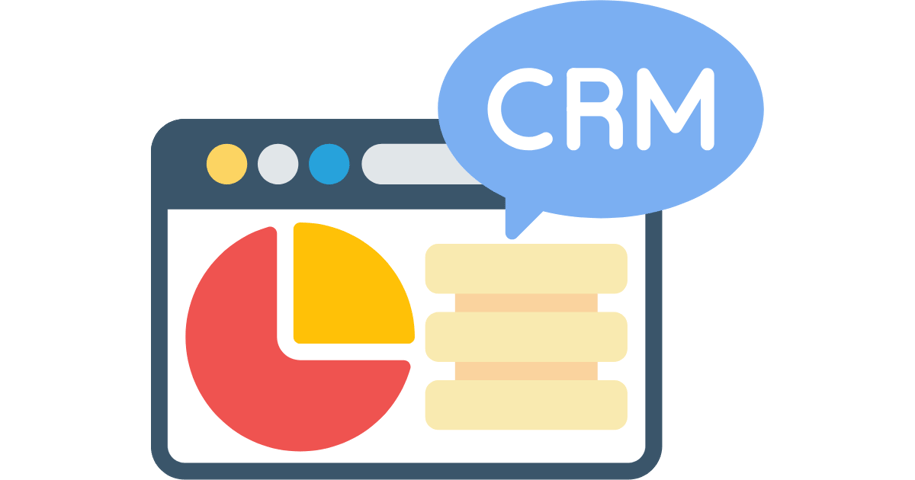Unleashing the Power: Top Benefits of CRM in Sales and Retention
Discover the game-changing benefits of CRM in sales and retention. Learn how CRM boosts efficiency, enhances customer loyalty, and drives business growth through data-driven strategies and personalized experiences.


The Ultimate Guide to CRM Benefits: Boosting Sales and Customer Retention
Key Takeaways
CRM systems improve sales processes and customer retention
CRM strategies lead to increased customer loyalty
CRM software features contribute to sales growth
Effective CRM use enhances customer retention rates
CRM tools provide insights for tailored customer interactions
Introduction
Customer Relationship Management (CRM) is essential for businesses in today's competitive marketplace. This guide explores the benefits of CRM in sales and retention, providing insights into how these systems can transform your business operations.
We'll examine strategies, features, and best practices that can help you leverage CRM to its fullest potential. From improving customer interactions to streamlining sales processes, CRM offers numerous opportunities for business growth.
CRM Strategies for Customer Retention
Customer retention is crucial for long-term business success. CRM offers effective strategies to improve retention rates and build customer loyalty.
Key CRM strategies for enhancing customer retention include:
Personalized Communication
Timely Follow-ups
Feedback Collection and Analysis
Let's explore each of these strategies in detail.
Personalized Communication and Offers
CRM systems store detailed customer data, enabling highly personalized messaging and offers. By tailoring your communication to each customer's needs and interests, you create a more engaging experience. This personalization shows customers that you value their business and understand their needs.
CRM data also allows for targeted offers and discounts based on purchase history and behavior. This level of personalization can significantly boost the effectiveness of your marketing efforts.
Timely Follow-ups and Proactive Issue Resolution
CRM automates and schedules follow-ups, ensuring no customer interaction is overlooked. Regular, timely contact helps build strong relationships and shows customers you're proactive in addressing their needs.
Moreover, CRM systems track all customer interactions, enabling proactive issue resolution. By monitoring patterns in customer data, you can identify and address potential issues early, often before the customer realizes there's a problem.
Feedback Collection and Loyalty Program Management
CRM systems collect and analyze customer feedback, allowing businesses to identify trends and areas for improvement. Actively seeking and responding to feedback demonstrates that you value customer opinions, boosting satisfaction and loyalty.
CRM also simplifies the management of loyalty programs. You can easily track points, rewards, and engagement, allowing for more sophisticated and tailored loyalty programs.
Increase Sales with CRM Software
While retention is crucial, driving new sales is equally important. CRM is a powerful tool for boosting sales performance through various features and capabilities.
Lead Scoring and Sales Pipeline Management
CRM software includes lead scoring functionality, helping sales teams focus on the most promising prospects. This targeted approach can significantly increase conversion rates and shorten the sales cycle.
CRM also provides clear visualization of the sales pipeline, allowing sales managers to identify bottlenecks, forecast sales, and optimize the sales process. A well-managed sales pipeline typically includes the following stages:
Lead Generation
Initial Contact
Qualification
Proposal/Quote
Negotiation
Closing
Data-Driven Decision Making and AI-Powered Insights
CRM systems are rich sources of customer and sales data. When properly analyzed, this data provides invaluable insights for business strategy and decision-making.
Artificial Intelligence (AI) in CRM systems offers predictive analytics and intelligent insights. AI can identify cross-selling opportunities, predict likely conversions, and even suggest optimal contact times for customers.
Mobile Access and Marketing Integration
Mobile CRM apps allow sales representatives to access and update customer information on-the-go, speeding up the sales process and improving responsiveness.
Many CRM systems also integrate seamlessly with marketing automation tools, creating a closed loop between marketing and sales efforts. This alignment leads to more effective lead nurturing and higher conversion rates.
Maximizing Customer Retention with CRM
Retaining existing customers is often more cost-effective than acquiring new ones. CRM systems offer several features to help maximize customer retention.
CRM enables sophisticated customer segmentation based on various criteria, allowing for targeted retention strategies. Advanced systems also include predictive analytics to identify customers at risk of churning, allowing proactive retention efforts.
Automated engagement campaigns keep customers connected with your brand. These can include welcome series for new customers, educational content, and re-engagement campaigns for inactive customers.
Implementing CRM for Optimal Results
The effectiveness of a CRM system depends on proper implementation and use. When choosing a CRM solution, consider the following factors:
Ease of use
Customization options
Integration capabilities
Scalability
Cost and ROI
Customer support and training
Comprehensive training for all users is crucial for effective CRM use. Establish processes for regular data cleaning and updating to maintain data integrity.
Measuring CRM Success
Regularly measure your CRM's impact by tracking metrics such as:
Customer Lifetime Value (CLV)
Sales cycle length
Customer satisfaction scores
These metrics will help you gauge the effectiveness of your CRM implementation and identify areas for improvement.
Conclusion
CRM is a powerful tool for boosting sales and retention in today's competitive business landscape. When properly leveraged, it can transform business relationships, streamline sales processes, and drive sustainable growth.
Remember, CRM implementation is an ongoing process. Continuously monitor performance, gather feedback, and adapt strategies as needed. With the right approach, CRM can be a game-changer for your business, helping you build stronger, more profitable customer relationships.


